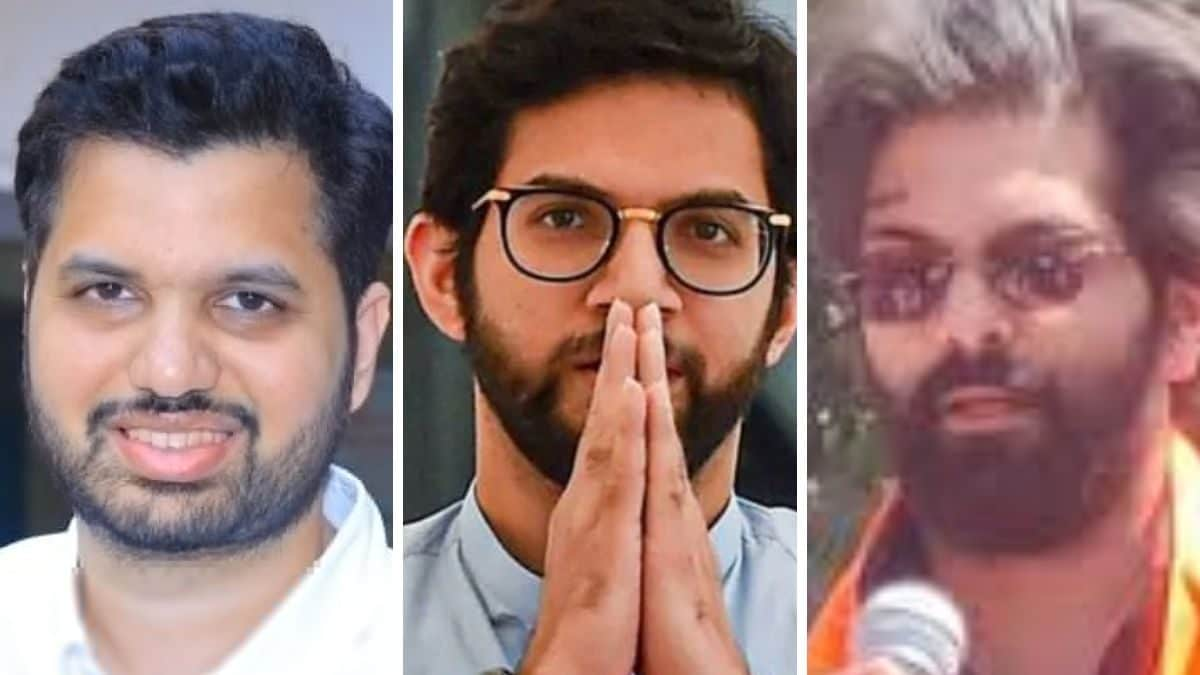 |
|
The Maharashtra assembly election results brought a mixed bag of fortunes for the Thackeray family. Aaditya Thackeray, son of former Chief Minister Uddhav Thackeray, successfully defended his Worli seat, a significant victory considering the political landscape and the challenges posed by his opponent, Milind Deora. Deora, a former Congress leader and Union Minister of State, had joined the Shinde faction of the Shiv Sena, adding a layer of complexity to the contest. Aaditya's victory can be attributed to several factors, including his father's legacy, ongoing development projects in Worli, and his own campaigning efforts. The Worli seat, part of the Mumbai South Lok Sabha constituency, holds considerable prestige for the Thackeray family, making Aaditya's win a crucial moment in the unfolding political narrative.
Meanwhile, Varun Sardesai, Uddhav Thackeray's nephew and a leader within the Uddhav Balasaheb Thackeray (UBT) faction of the Shiv Sena, secured a win in Bandra East. This victory, however, was far from straightforward. He faced a formidable opponent in Zeeshan Siddique, who capitalized on the sympathy generated by the murder of his father, Baba Siddique, a prominent NCP leader. The Bandra East constituency, home to the Bandra-Kurla Complex (BKC) and Matoshree, the Thackeray family residence, adds significance to Varun's win. His success highlights the resilience of the UBT faction in a region where their influence is deeply rooted.
In stark contrast to the victories of Aaditya and Varun, Amit Thackeray, son of Maharashtra Navnirman Sena (MNS) chief Raj Thackeray and cousin of Uddhav Thackeray, suffered a defeat in the Mahim constituency. His loss to Mahesh Sawant of the UBT faction underscores the shifting political dynamics within the state. The Mahim constituency, home to the Shiv Sena Bhavan (now the UBT headquarters) and Shivaji Park, was the site of a high-stakes three-way battle between the UBT, the Shinde Sena, and the MNS. This contest highlights the internal divisions within the Thackeray family and their broader political spheres of influence. Despite Raj Thackeray's active campaigning on his son's behalf, Amit's relative lack of political experience compared to the other candidates may have contributed to his defeat.
The overall results demonstrate a complex picture of the Thackeray family's standing in the Maharashtra political scene. While Aaditya's and Varun's victories represent a degree of continuity and resilience for the UBT faction, Amit's loss suggests the challenges and uncertainties facing the MNS and its prospects for future political growth. The family's fractured relationships and the intense competition within the Shiv Sena have undeniably shaped these outcomes. Furthermore, the results reveal the complex interplay of regional factors, candidate appeal, and broader political allegiances in determining the success of individual candidates. These election results are likely to have significant long-term implications for the political landscape of Maharashtra, influencing future alliances and shaping power dynamics within the state.
Analyzing the individual contests in more detail reveals further insights. In Worli, Aaditya’s win, while expected by some, was not a guaranteed outcome. His campaign highlighted developmental initiatives and focused on connecting with the local population. Deora’s campaign, while attempting to leverage his own experience and the backing of the Shinde Sena, failed to gain the traction needed to overcome Aaditya’s established presence and the local support network. In Bandra East, Varun’s victory over Siddique showcases strategic campaigning in a sensitive context, balancing development issues with addressing community concerns. The sympathy vote for Siddique presented a considerable challenge; Varun’s ability to overcome this highlights the effectiveness of his campaign.
The Mahim contest stands out as a pivotal clash between the UBT and MNS factions. The presence of Raj Thackeray in Amit’s campaign underscores the significance of this battle. However, despite Raj Thackeray’s considerable political acumen and charisma, Amit’s defeat reflects the limitations of relying on the reputation of the father. Mahesh Sawant’s win in Mahim solidifies the UBT’s position in this crucial constituency. The varied outcomes within the Thackeray family reflect the fluctuating dynamics within Maharashtra's political landscape, where loyalty, familial connections, and established political networks play a crucial role.
Source: Thackeray Scoreboard: Aaditya Retains Worli, Varun Wins Bandra East, Amit Loses Mahim
